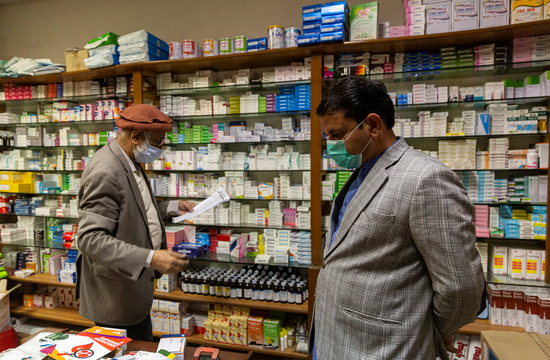
The Sustainable Development Goals highlight the importance of good governance for realizing development goals, including universal health coverage. Governance concerns include the effective prevention and management of conflicts of interest that may compromise the integrity of decision-making in the public pharmaceutical sector. This online course has been developed to support countries with practical guidance on preventing and managing conflicts of interest in public pharmaceutical systems.
Photo credits: WHO / Blink media - Saiyna Bashir
语言: English
Health topic
课程信息
Overview: In collaboration with the World Health Organization (WHO) Division of Medicines and Health Products and other partners, the USAID Medicines Technologies and Pharmaceutical Services (MTaPS) coordinated the development of the WHO approved ‘Managing conflicts of interest, a how-to guide for public pharmaceutical-sector committees in low- and middle-income countries’ manual.
The manual was developed in response to the need to improve understanding of conflict of interest (COI) in public pharmaceutical decision making and the need for guidance on preventing and managing it. The manual identifies and explains ten critical steps for strengthening COI policy, prevention, and management in public pharmaceutical decision-making committees.
The approach is practical and may be adaptable to specific contexts and elaborated on as more evidence is gathered. The manual was published on the WHO website in September 2022 and is accessible to everyone.
Course duration: Approximately 1 hour.
Certificates: A Certificate of Achievement will be available to participants who score at least 80% of the total points available in the final assessment. Participants who receive a Record of Achievement can also download an Open Badge for this course. Click here to learn how.
你将学到什么
- Address what a COI in the context of the public pharmaceutical system is and identify potential adverse outcomes associated with these COIs
- Explain the need for preventing and mitigating these COIs
- Describe practical guidance provided by WHO on how to prevent and manage COIs in the public pharmaceutical system
- Outline current COI issues in countries, and reflect on approaches to address them
- Adapt and apply good practices for preventing and managing COIs in the public pharmaceutical system.
课程内容
Introduction to the course
Module 1: Introduction to managing conflicts of interest in national pharmaceutical systems:
This section covers four components, including: the need for prevention and management of conflict of interest; understanding conflict of interest; conflict of interest distinctions; pervasiveness of conflict of interest.Module 2: Strengthening policy, prevention, and management of conflicts of interest:
This section covers two components, including: 1. Guiding principles for conflict-of-interest policies, 2. A 10-step process for improving the prevention and management of conflicts of interest.Module 3: Policy and implementation mechanisms:
This section covers one component: In this section we will dig deeper into the first five steps for improving the prevention and management of conflicts of interest which involve policy and implementation mechanismsModule 4: Processes and procedures:
This section covers: 1. In this section, our focus will remain on discussing the subsequent five steps that aim to enhance the prevention and management of conflicts of interest.Final assessment